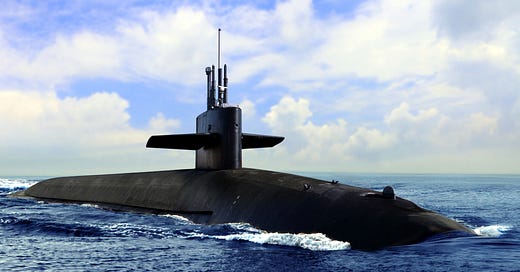Quantum Untangled: How the military is finding its superposition
The defence industry is betting big on quantum computers and sensing applications.
War is the greatest catalyst of innovation. When a nation confronts its destiny on the battlefield, new methods to outsmart and outfight the enemy are sought after like never before. Even the hint of conflict is enough to justify massive investment in new military technologies and weapons platforms, from hypersonic missiles and nuclear submarines to gigantic aircraft carriers and UAVs. In that context, the system or system is procured as a kind of insurance against defeat — it’s better, after all, to have the protection and never need it than begin fighting with a half-empty arsenal.
It is with the former argument in mind that the defence sector has become one of the foremost champions of quantum technology. Indeed, practical quantum tech has made its debut in a number of critical systems, including naval navigation, where quantum sensors can allow your common variety frigate to sail without recourse to GPS, to logistics, where photonic quantum computers are helping, among others, the UK’s Ministry of Defence to more accurately chart troop movements.
More applications are bound to emerge over the next decade, BAE Systems’ quantum lead Dr. Roberto Lo Nardo told me in an interview earlier this year. “Each of those will have different timelines, and will bring different levels of operational advantages.”
He suggests that quantum sensing technologies will be among the most likely to be deployed within the next five years. The advanced technology can more accurately detect changes in motion as well as discrepancies in electric and magnetic fields than current classical technology, using quantum mechanical effects like entanglement and superposition to precisely measure physical properties at the atomic scale. Indeed, one area where quantum sensors may prove to be transformative is in the field of anti-submarine warfare, where appropriately-named 'SQUID’ systems (superconducting quantum interference devices) designed to spot minute changes in magnetic fields could spot enemy vessels more efficiently than sonar ever would.
Quantum wars
A report by the Czech Technical University Prague and the Joint Air Power Conference Centre published earlier this year described the invention of nuclear fission, lasers and the first semiconductors as "Quantum Revolution 1.0", the first era where the processes of quantum mechanics could be exploited for both societal and defensive purposes. “The first quantum revolution had and still has,” the authors declared, “a profound impact on all aspects of society, from the military and international security to the development of atomic weapons, chips, computers, and precise navigation.”
The second quantum revolution will build on the first, the report predicts, by harnessing quantum sensors and computers to streamline many of the logistical and navigational applications utilised in modern warfare. “Quantum computers,” said Lo Nardo, “have the potential to improve research and development, simulation and production processes used to build key components in the supply chain of the defence industry. Those improvements have the potential to provide a competitive advantage to military end-users.”
Quantum technology may also lead to operational efficiencies in logistics and intelligence analysis. The embrace of multi-domain integration by the modern Western military force has led to a massive increase in the amount of raw data being sent back to headquarters by sensors, vehicles and units on the frontline. Quantum computers could help to parse all of that data more efficiently, allowing critical decisions to be made more quickly. This, added Lo Nardo, offers “a large operational advantage in the battlespace.”
How long, then, before we see quantum sensors aboard hulking, grey destroyers? As in any conversation about quantum applications, we’re talking years, not months. Defence chiefs will have to wait a long while before their naval vessels begin harnessing the power of the atom outside of their nuclear reactors. “Quantum technologies hold great promise,” wrote the authors of the Czech report, “but should not be assumed to revolutionize defence applications in the foreseeable future.”
I’m inclined to agree. While we might be seeing companies like ORCA sell photonic quantum computers to the MoD, the US government push for companies to quickly shift to post-quantum cryptography protocols or the Royal Navy utilising quantum sensors, these remain experiments to test the potential of the technology and not full-bore commitments to its implementation. Even if that were to be made, deploying quantum tech across an entire army, navy or air force would be no easy task. Then again, considering the long timelines usually associated with costly defence projects, what’s another decade between enemies?
Partner Content
The security challenges of digitalising the energy grid - Tech Monitor
How do we restore trust in the public sector? - The New Statesman
Brands must seek digital fashion solutions - Tech Monitor
The new to direct capital deployment to decarbonise household electrification - Capital Monitor



